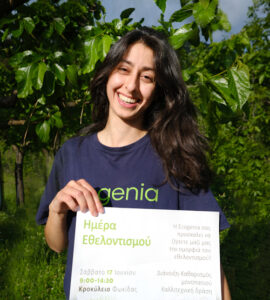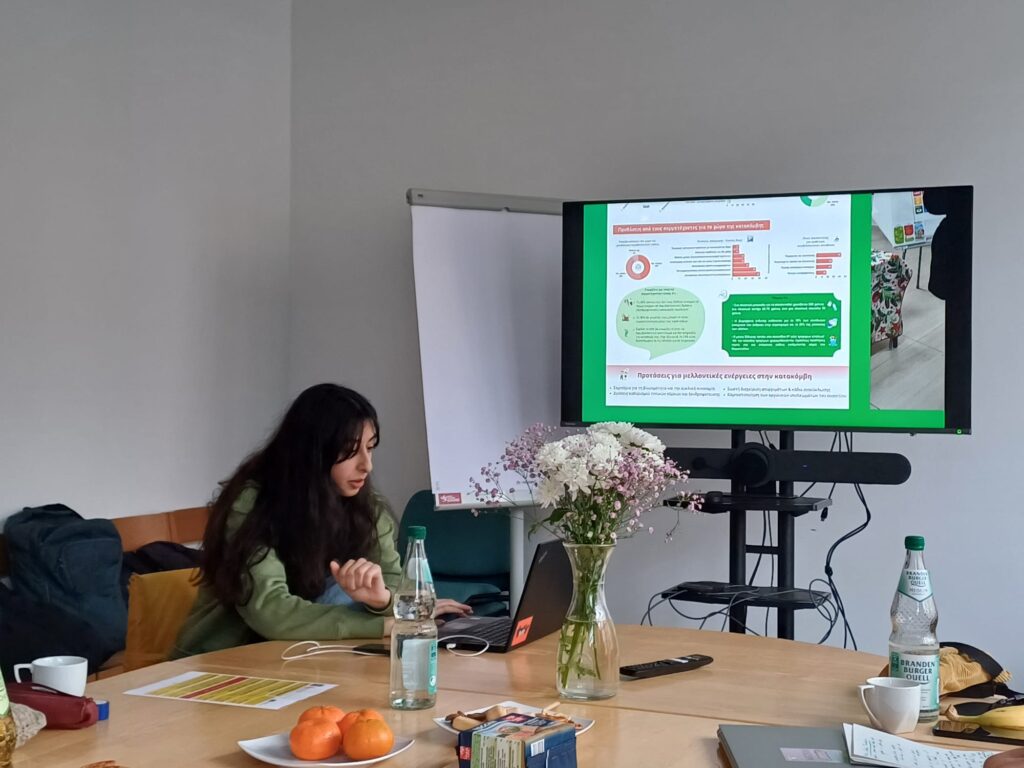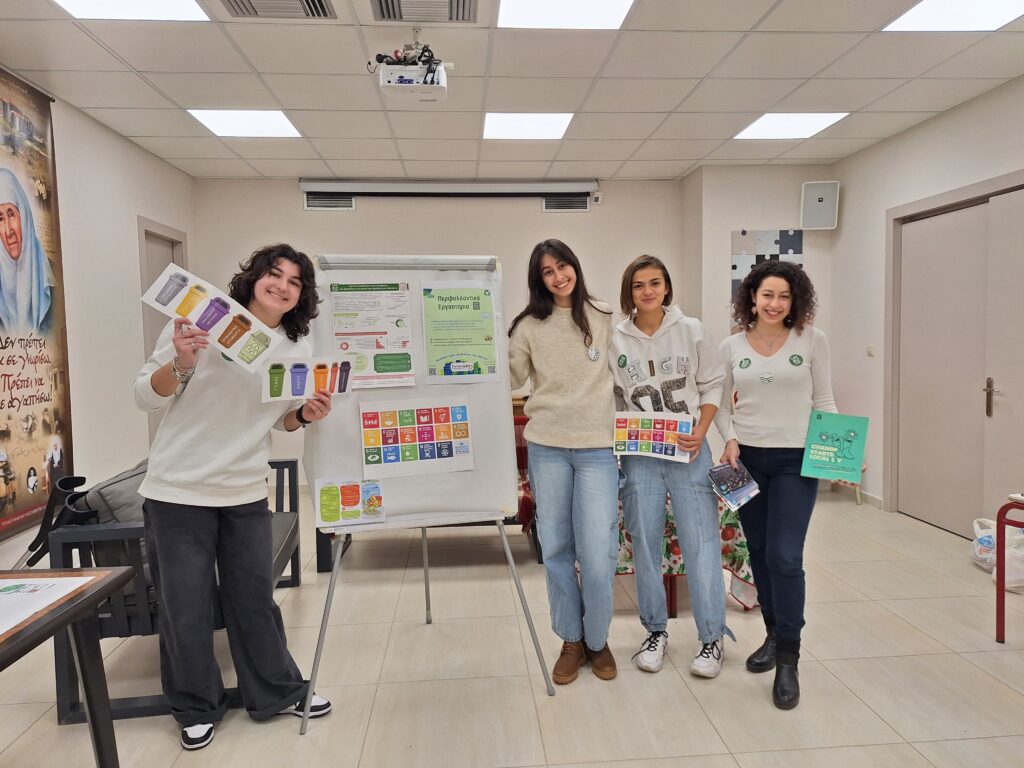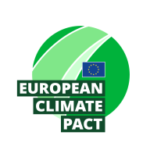
Maria Zisi
Ecogenia's - Dorida 2023 Cohort Member
Recently, I participated as a representative for Ecogenia, alongside Ecogenia staff member Eleni Antoniadou, in the mid-term meeting of the European Project LOCALY in Berlin, focused on reflecting on and presenting our experiences with implementing a community project.
‘The European Erasmus+ program LOCALY aims to provide teenagers with the foundations to, together with their coordinators – youth workers, identify an environmental issue in their community, analyze it, and propose solutions through small-scale actions.’ ( https://www.localyproject.eu/ )
During the first day of the meeting, we had the opportunity to present our implementation process to the international team. We shared both the challenges and successes we encountered along the way, as well as, the lessons learned from the various community projects implemented in different local contexts, by discussing what worked, what didn’t, and how we could refine our approach for the future. An important part of the optimization workshop was working on the LOCALY toolkit, by evaluating it and suggesting improvements based on our experiences.
On the second day, we took part in a podcast production session discussing climate anxiety, a common issue, we found worrying teenagers in the different localities. It was very insightful and educational to have this experience to reflect on our process of implementing a community project. We exchanged ideas, brainstormed about future projects and shared difficulties. The discussions were highlighting the emotional burden that young people carry when facing environmental challenges and the importance of providing them with a toolkit of methodologies and ideas to take action.

Overview of our LOCALY implementation project in Thessaloniki
Our project was carried out over four months in collaboration with my fellow youth worker (and fellow Ecogenia cohort member alumna), Anthi Paschalidou. Together, we worked alongside a group of teenagers—delivering workshops on sustainability and guiding them through the process of developing and executing their own community project.
Before we started our implementation work, we participated in a “train-the-trainer” program in Asturias, Spain, alongside youth workers from Italy, Germany, and Spain. We explored environmental education techniques and developed activities to engage young people in climate action, using a specialized educational toolkit.
Following our training, we organized our implementation projects for September 2024. We launched the program in collaboration with the Parish youth center in Evosmos, Thessaloniki. Similar programs were also implemented in other partner countries, as part of the LOCALY project.
During October-November 2024, we formed a youth team, facilitated environmental seminars on climate crisis and sustainability, and worked with the participants to choose which environmental actions to implement.
In December 2024, we prepared for the activities by conducting a questionnaire on environmental awareness and developing environmental games. By the end of the month, we hosted the final event, where children participated in interactive environmental activities, and presented the results of the questionnaire.
A total of 65 participants from the youth center completed the environmental awareness questionnaire, and 30 children participated in the final event, engaging in the activities. Recently we got some news, our actions, though small, made a positive impact! The youth center implemented a composting bin to prevent food waste, a tangible outcome from the community project that reflects the power of environmental education!
Anthi’s reflections on the experience:
“It is well known that church parish activities are not typically associated with environmental initiatives. While this is not their primary focus, parish members are generally environmentally conscious. For me, it was a unique experience to highlight just how aware and engaged our community truly is, especially since I have been an active member for many years.
The youth center leaders were open from the start to hosting environmental seminars for children, welcoming us into their space. Given the many afternoon activities already taking place in Katakomvi, forming a large team for the LOCALY project was challenging. However, those who participated greatly benefited, as they had limited prior exposure to environmental education and actions.
Parish youth centers may not seem like natural spaces for environmental awareness, but with the right guidance, they can smoothly incorporate eco-friendly habits that benefit both the community and the environment, while staying true to their spiritual mission.”

Reflecting on my experience as part of the LOCALY project, I gained a variety of insights, experience in local implementation initiatives, and a better understanding of the needs of young people.
One aspect that made me quite pleased was seeing the young participants’ environmental awareness, as well as the incisive questions, excitement, and ideas they brought to each meeting. Through a series of sessions, we exchanged ideas, shared knowledge, and learned from one another.
In guiding and supporting the group of teenagers to create their local environmental project, what stayed with me was the hope that young people are willing to take action for the climate. Their dedication was inspiring. However, as I observed the lack of tools and methods for taking action, I found myself asking: How can we give access to these resources and toolkits to more and more young people?
This question has become central in my reflection on how to expand the reach of this vital knowledge and support, so that we can empower youth in even more communities to make a meaningful impact.

